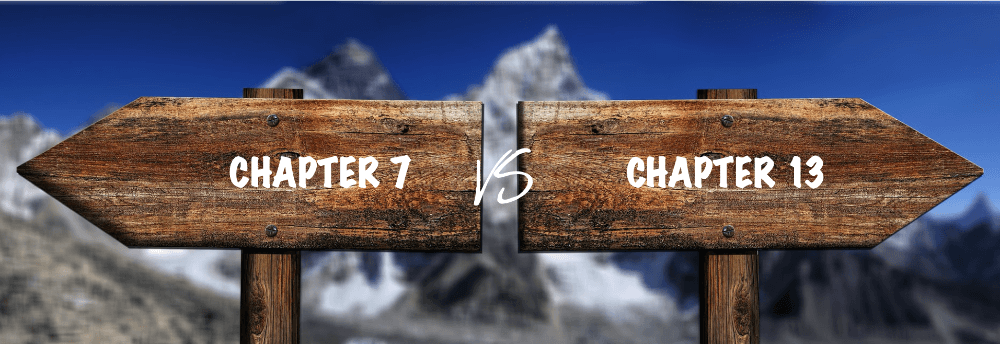For people in serious debt who are finding it difficult to keep up with payments on their loans or credit card bills, the commonest bankruptcy options to help alleviate or clear debts are Chapter 7 and Chapter 13.
This said, there are some marked differences between these two chapters, and the one to be filed for is based on your level of income at the moment. The fate of your property is one of the sharpest of these differences.
Some debts can be discharged under both chapters, however, neither Chapter 7 nor Chapter 13 allows a discharge of child support, alimony, mortgages, student loans and car loans.
Now, here’s a discourse to shed light on how these two Chapters address the pressing issues pertaining to bankruptcy, and what they entail.
CHAPTER 7 BANKRUPTCY
Also known as liquidation bankruptcy, Chapter 7 entails that property gets sold off to pay debts. This makes the most sense for those of limited means who are no longer able to pay back the whole or even portions of their debts.
Property
Under Chapter 7, most of your assets will be sold and the proceeds channelled to settling debts. It’s thus best for a person who does not own a home. While some personal possessions can be exempted from the sell-out, there is a value limit on these. Federal and state exemption rules exist. (If you intend to file for bankruptcy in Des Moines County, Iowa, you’ll well to find out what obtains.) For married couples filing bankruptcy together, the value limit on exemptions is usually doubled.
If you are deemed fit for Chapter 7 bankruptcy, all unsecured debts will be discharged after the court approves your filing, which may take a few months.
Eligibility
Chapter 7 works best for those whose income is limited, and who cannot afford to pay back a portion or all of their debt. You are eligible for Chapter 7 if your household income falls below your state’s median level.
For those with income above the median, a “means test” must be taken to determine if there is enough disposable income (that is, the remaining income after deducting basic living costs) to cover some debts. Passing the test will mean passage to Chapter 13 bankruptcy.
CHAPTER 13 BANKRUPTCY
Also termed reorganization bankruptcy, Chapter 13 offers property protection in the sense that after having completed a court-ordered repayment plan, one should be able to keep their property.
The repayment plan will involve paying creditors a part of the remaining debt over a fixed period. On completion of the plan, the debts left unpaid, like medical bills and credit card debts, can be discharged, meaning that they are no longer required to be paid.
Property
Chapter 13 bankruptcy requires no property to be sold initially. A court-ruled debt repayment plan will be drawn up spanning three or five years, based on your income. If you’re able to keep up with back payments and current payments during this period, you’ll be able to keep those assets after the plan is done.
In Chapter 13 bankruptcy, you have to keep making consistent payments on unsecured debts according to the repayment plan approved by court. After the successful completion of this plan, outstanding debts may then be discharged.
Eligibility
To file for Chapter 13 bankruptcy, one must have:
- Regular income
- Total unsecured debts below $394,725. (These are debts not backed by a collateral asset like a home or a car.)
- Total secured debts below $1,184,200. (These are debts backed by pledged collateral assets. For example, the collateral for mortgage is the home, and that for an auto loan is the car.)
Both Chapter 7 and Chapter 13 are designed to help people get through the rough patch of bankruptcy, however, hiring a bankruptcy attorney is the best way to make smoothen the entire process. If you think you’re due to file for bankruptcy in Des Moines County, Iowa, you can get in touch with us to get the best counsel on what chapter to file for.

